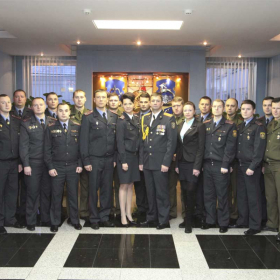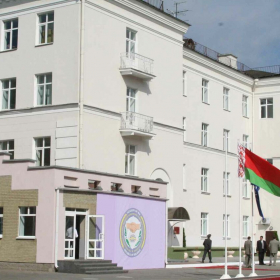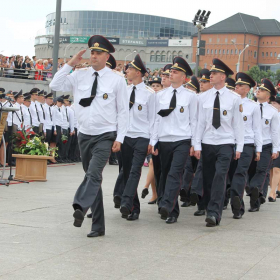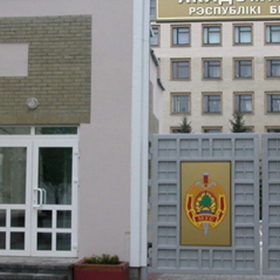-
 Back
Back
-
Attorneys and Lawyers
-
Auditing services
-
Notary services
-
Translation services
-
Recruitment agencies
-
Accounting firms
-
IT companies
-
Web design
-
Advertising agencies
-
Banks
-
Real estate
-
Insurance
-
Car rental
-
Car sharing
-
Car showrooms
-
Dry cleaners
-
Cleaning
-
Repairs and renovation
-
24/7 Pharmacies
-
Health
-
Psychologist
-
Taxi services
-
Hunting and fishing
-
Customs agents
-
Goods certification
-
 Back
Back
-
Citizenship of Belarus
-
Residence permit in Belarus
-
Permanent residence in Belarus
-
Work permit in Belarus
-
Open private bank account
-
Money transfers
-
Marriage in Belarus
-
Adoption of children
-
Get a pet
-
Veterinary control
-
Driving car in Belarus
-
Driving license exam
-
Car purchase in Belarus
-
Electric cars
-
Buy property
-
Education
-
Job in Belarus
-
Pension
-
Sick leave
-
Dating in Belarus
-
Marriage agencies
-
Birth of a child
-
Maternity leave
-
Telephone and Internet
-
Radio and TV
-
Utilities
-
Tax-free
-
Emergency numbers
-
Life in Belarus - Blog
-
JA Club Talks
-
Build a house in Belarus
-
 Back
Back
-
Open company
-
Representative office
-
Open business bank account
-
Taxes
-
Office rent
-
Commercial property websites
-
Individual entrepreneurship
-
Double Taxation Treaties
-
Recognition of foreign documents
-
Charity
-
Postal services
-
Marketing and PR
-
Free economic zones
-
China-Belarus industrial park
-
High-Tech Park
-
IT business
-
Crypto business
-
Intellectual property
-
Famous belarusian brands
-
Average wages
-
Business blog
-
Business relocation
-
 Back
Back
-
Universities
-
Masters degree
-
Postgraduate studies
-
Colleges
-
Foundation programs
-
Language courses
-
Education abroad
-
Accommodation for international students
-
Bologna process
-
Recognition of Belarusian diplomas abroad
-
MBA
-
Medical education
-
Linguistic education
-
Economic education
-
Art education
-
IT education
-
Education blog
-
 Back
Back
-
 Back
Back
-
Weather and climate
-
Language
-
Religion
-
Local currency
-
Population
-
History and political system
-
Transport system
-
Healthcare
-
Main festivals and celebrations
-
Useful words and phrases
-
Public holidays in Belarus
-
COVID-19
-
Government
-
Sport
-
Blog about Belarus
-
Minsk – capital of Belarus
-
Brest
-
Vitebsk
-
Grodno
-
Gomel
-
Mogilev
Attorneys and Lawyers
Auditing services
Notary services
Translation services
Recruitment agencies
Accounting firms
IT companies
Web design
Advertising agencies
Banks
Real estate
Insurance
Car rental
Car sharing
Car showrooms
Dry cleaners
Cleaning
Repairs and renovation
24/7 Pharmacies
Health
Psychologist
Taxi services
Hunting and fishing
Customs agents
Goods certification
Citizenship of Belarus
Residence permit in Belarus
Permanent residence in Belarus
Work permit in Belarus
Open private bank account
Money transfers
Marriage in Belarus
Adoption of children
Get a pet
Veterinary control
Driving car in Belarus
Driving license exam
Car purchase in Belarus
Electric cars
Buy property
Education
Job in Belarus
Pension
Sick leave
Dating in Belarus
Marriage agencies
Birth of a child
Maternity leave
Telephone and Internet
Radio and TV
Utilities
Tax-free
Emergency numbers
Life in Belarus - Blog
JA Club Talks
Build a house in Belarus
Open company
Representative office
Open business bank account
Taxes
Office rent
Commercial property websites
Individual entrepreneurship
Double Taxation Treaties
Recognition of foreign documents
Charity
Postal services
Marketing and PR
Free economic zones
China-Belarus industrial park
High-Tech Park
IT business
Crypto business
Intellectual property
Famous belarusian brands
Average wages
Business blog
Business relocation
Universities
Masters degree
Postgraduate studies
Colleges
Foundation programs
Language courses
Education abroad
Accommodation for international students
Bologna process
Recognition of Belarusian diplomas abroad
MBA
Medical education
Linguistic education
Economic education
Art education
IT education
Education blog
Weather and climate
Language
Religion
Local currency
Population
History and political system
Transport system
Healthcare
Main festivals and celebrations
Useful words and phrases
Public holidays in Belarus
COVID-19
Government
Sport
Blog about Belarus
Minsk – capital of Belarus
Brest
Vitebsk
Grodno
Gomel
Mogilev









